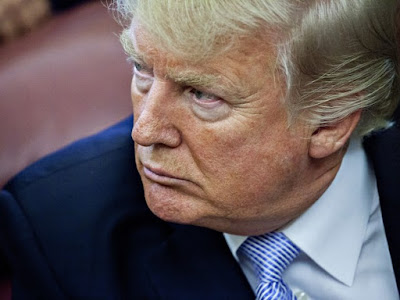 A government court in California managed another blow Thursday to the Trump organization's travel boycott, deciding that a few outcasts must be permitted into the nation.
A government court in California managed another blow Thursday to the Trump organization's travel boycott, deciding that a few outcasts must be permitted into the nation. It is the most recent bit of the legitimate wrangling touched off by President Donald Trump's boycott, first declared in January with little notice and broadly scrutinized as unfair against Muslims. Trump says it is expected to keep out psychological militants.
In the new managing, the US Ninth Circuit of Appeals, situated in San Francisco, maintained a decision by a court in Hawaii, a ruling against which the organization had requested.
The new choice expresses that the boycott must prohibit "outcasts who have a formal affirmation from an office inside the United States that the office will give or guarantee the arrangement of gathering and situation administrations to that exile."
It could make ready for the section of somewhere in the range of 24,000 displaced people whose haven demands had just been affirmed.
What's more, as the US Supreme Court had managed in July, the three-judge board in San Francisco affirmed that the boycott can't be connected to grandparents and other close relatives living in six for the most part Muslim nations and trying to visit relatives in the United States.
The Supreme Court decided in late June that the 90-day travel boycott, purportedly went for better screening out potential security dangers, can be extensively authorized for explorers from the six principally Muslim nations "who do not have any true blue association with a man or element in the United States."
Days after the fact, the Trump organization deciphered that to imply that exclusive "close family" was exempted. It characterized this as the guardians, companions, youngsters, children and little girls in-law, kin and step-and half-kin of individuals in the United States.
The California court said Wednesday the organization "does not offer a powerful clarification for why a relative is obviously a true blue relationship in the Supreme Court's earlier thinking, however a grandparent, grandchild, close relative, uncle, niece, nephew or cousin is definitely not."
The San Francisco court was controlling on the issue on the grounds that the Supreme Court had rejected a Justice Department ask for that it characterize what it implies by "true blue relationship" and "close family."
The Justice Department issued an announcement saying "we will now come back to the Supreme Court to vindicate the official branch obligation to secure the country."
The Supreme Court is planned to return to the travel boycott and concentrate its lawfulness in October.
Comments